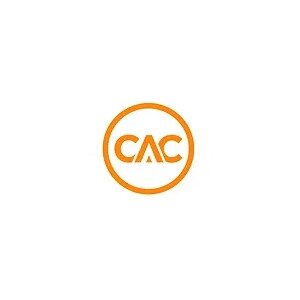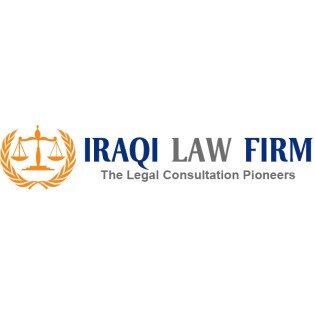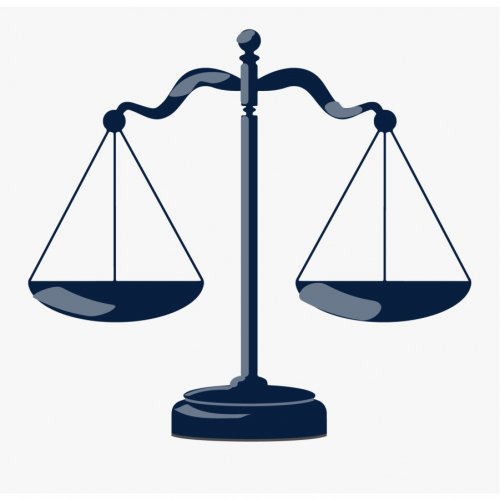Best Government Relations & Lobbying Lawyers in Iraq
Share your needs with us, get contacted by law firms.
Free. Takes 2 min.
Or refine your search by selecting a city:
List of the best lawyers in Iraq
About Government Relations & Lobbying Law in Iraq
Government Relations & Lobbying in Iraq involve activities aimed at influencing public officials and the formation of legislation or policy. In Iraq, this field is complex due to a variety of political, legal, and cultural factors. While structured lobbying is not as widespread in Iraq as in some Western countries, there is a growing focus on transparency and regulation in advocacy efforts. The government is gradually introducing laws to structure lobbying activities, requiring entities involved in advocacy work to comply with certain registration and reporting requirements.
Why You May Need a Lawyer
Individuals and organizations may seek legal assistance in Government Relations & Lobbying in Iraq for several reasons:
- Understanding and complying with new or existing lobbying-related laws and regulations.
- Representing interests in interactions with governmental bodies to ensure their concerns and objectives are efficiently communicated.
- Drafting and filing necessary documentation with relevant governmental agencies.
- Negotiating terms and ensuring the legality of contracts and agreements involving governmental entities.
- Advising on corporate social responsibility and regulatory compliance.
- Defending against allegations of improper lobbying practices or violations of the law.
Local Laws Overview
The legal framework governing Government Relations & Lobbying in Iraq is evolving. Key aspects include:
- Regulation of lobbying activities: Efforts are being made to establish clear guidelines for lobbyists, including registration and reporting requirements.
- Transparency and anti-corruption measures: Laws aimed at increasing transparency in government dealings and reducing corruption are being enforced.
- Governmental approval for foreign entities: Foreign entities engaging in lobbying activities often require specific governmental approvals.
- Political influence: There are specific restrictions on the levels of influence that can be exerted, particularly concerning political donations.
- Public procurement: Specific procedures must be followed to influence procurement processes, with increased scrutiny on conflict of interest and fair bidding.
Frequently Asked Questions
How is lobbying defined in Iraq?
Lobbying activities in Iraq encompass any direct or indirect efforts to influence governmental decision-making. It can include consultations, meetings with officials, and participation in public forums.
Do I need to register as a lobbyist in Iraq?
While the concept of registration is emerging, currently, it is not uniformly enforced across the country. However, entities involved in sustained lobbying efforts are encouraged to register to ensure compliance with future regulations.
What documentation is necessary for lobbying activities?
Documentation generally includes lobbying proposals, communication logs with officials, and financial disclosures related to advocacy efforts.
Are there limits on political donations by lobbyists?
Yes, there are restrictions on political donations aimed at preventing undue influence over political processes. It's important to consult legal advisors to navigate these restrictions correctly.
How are conflicts of interest managed in lobbying?
Laws require full disclosure of potential conflicts of interest to ensure transparency and avoid unethical influence over policy-making.
What is the role of foreign lobbyists in Iraq?
Foreign lobbyists are subject to stricter regulations and often need government approval to operate, given national security concerns.
Can lobbying activities affect public procurement processes?
Yes, lobbying can influence public procurement, but such activities are closely monitored to prevent corruption or unfair advantages in government contracts.
What penalties exist for unlawful lobbying practices?
Penalties range from fines to imprisonment depending on the severity of the violation, including engaging in corrupt practices or failing to register lobbying activities.
How does lobbying affect legislative changes?
Lobbying can effectively shape legislative proposals and priorities by providing expertise and advocating for specific interests and policy outcomes.
Can lobbyists work for both private and governmental entities?
In general, lobbyists should avoid working for conflicting interests simultaneously to uphold ethical standards and avoid conflicts of interest.
Additional Resources
Individuals seeking guidance on Government Relations & Lobbying in Iraq can refer to the following resources:
- The Iraq Ministry of Justice: Offers information on current laws and regulations.
- Chambers of Commerce in major cities: Provide assistance and resources for businesses engaging in lobbying activities.
- Legal advisory firms specializing in Iraqi governmental relations.
- Non-governmental organizations focused on transparency and good governance.
Next Steps
If you require legal assistance in the field of Government Relations & Lobbying in Iraq, consider the following steps:
- Identify specific issues or objectives related to your lobbying efforts.
- Consult with legal experts who specialize in government relations and Iraqi law to receive informed guidance.
- Ensure you have comprehensive documentation and a clear understanding of the local legal requirements.
- Register lobbying activities with the appropriate governmental authorities if applicable.
- Stay informed of any changes in regulations or laws that may affect your advocacy efforts.
Lawzana helps you find the best lawyers and law firms in Iraq through a curated and pre-screened list of qualified legal professionals. Our platform offers rankings and detailed profiles of attorneys and law firms, allowing you to compare based on practice areas, including Government Relations & Lobbying, experience, and client feedback.
Each profile includes a description of the firm's areas of practice, client reviews, team members and partners, year of establishment, spoken languages, office locations, contact information, social media presence, and any published articles or resources. Most firms on our platform speak English and are experienced in both local and international legal matters.
Get a quote from top-rated law firms in Iraq — quickly, securely, and without unnecessary hassle.
Disclaimer:
The information provided on this page is for general informational purposes only and does not constitute legal advice. While we strive to ensure the accuracy and relevance of the content, legal information may change over time, and interpretations of the law can vary. You should always consult with a qualified legal professional for advice specific to your situation.
We disclaim all liability for actions taken or not taken based on the content of this page. If you believe any information is incorrect or outdated, please contact us, and we will review and update it where appropriate.
Browse government relations & lobbying law firms by city in Iraq
Refine your search by selecting a city.

















